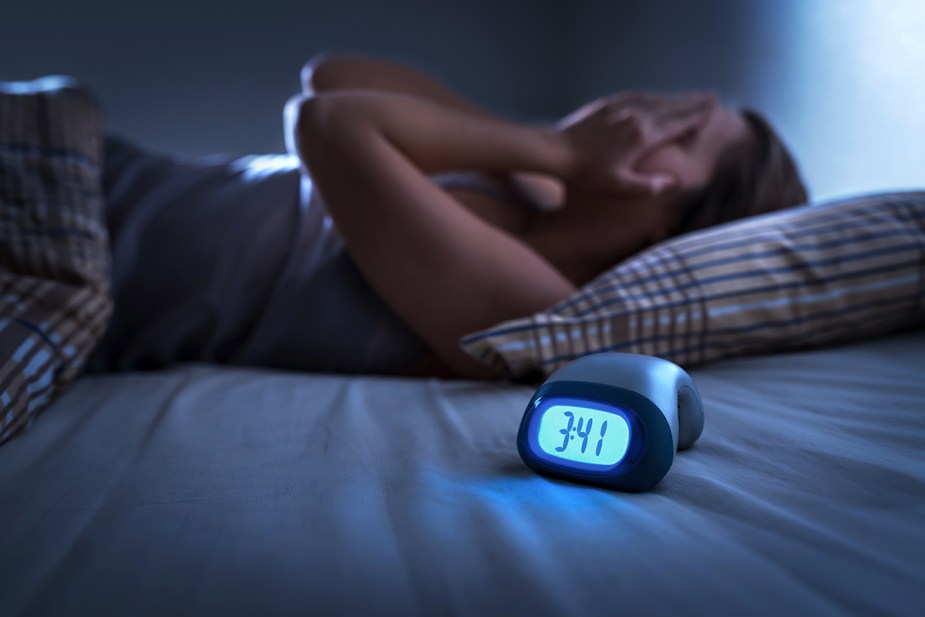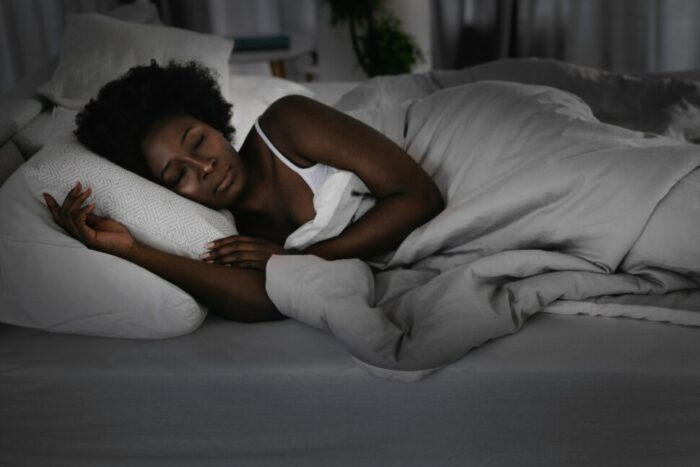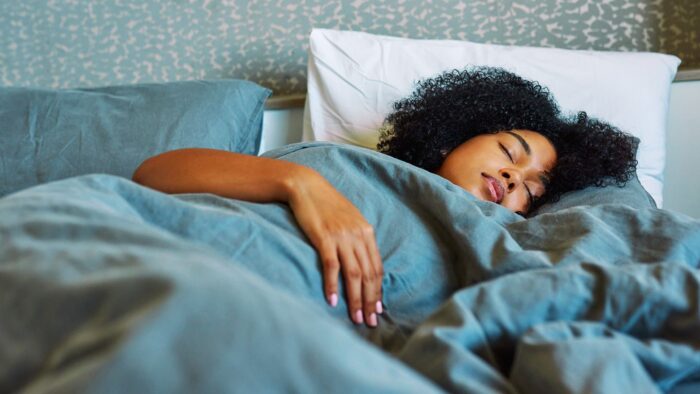
Insomnia is an unfortunately common issue that impacts millions of people worldwide. It’s more than just sleeping late or having difficulty falling asleep. Chronic insomnia can cause fatigue during the day, making you feel disconnected from your surroundings.
Approximately half of adults experience occasional insomnia, while chronic insomnia affects one in ten people, according to Cleveland Clinic. However, with the right steps and techniques, you, too, can beat your insomnia and get back to enjoying restful nights of sleep. This article will explore eight tips to help you beat insomnia and sleep better:
1. Create a Sleep-Friendly Environment

Make your bedroom a peaceful and comfortable space for sleep. A dark, cool bedroom with minimal distractions can increase the chances of falling quickly and staying asleep through the night. Invest in blackout curtains or an eye mask to block out any light that might interrupt your slumber.
Use a white noise machine or earplugs to muffle sounds outside your room to reduce noise levels. Indoor plants are also known for their calming effects, so adding some to your room can help you drift off easier.
In addition, declutter your room. Start by assessing your belongings and removing items you no longer need or use. Consider investing in organizing tools like shelves, under-bed storage, or hanging organizers to maximize your space and keep everything tidy.
As you declutter, take the opportunity to infuse your space with personality and style. Add a pop of color with throw pillows or a cozy throw blanket, or hang up some new art to create a relaxing atmosphere.
2. Exercise Regularly
Exercise releases endorphins which can reduce stress and improve mood. It also encourages proper breathing patterns, a key part of relaxation and falling asleep more easily. Incorporating more movement throughout the day can be a great solution if your schedule is too busy for extensive exercise.
Avoid strenuous workouts too close to bedtime since they can increase your energy levels, making it harder to relax and fall asleep when needed. Yoga is also great for reducing stress levels before bed, so try incorporating some gentle stretching into your pre-bedtime routine for maximum results.
3. Add CBD-Infused Products to Your Routine

Cannabidiol (CBD) can help sleep issues due to its calming properties, making it a great choice for people with insomnia or other sleeping problems. Consider incorporating CBD oil, edibles, topicals, or tinctures into your daily routine to experience its full benefits.
It is also important to remember to purchase organic cbd gummies for sleep from reputable suppliers who provide lab results for their products to ensure quality. Start with a lower dosage and gradually increase if necessary. For an added dose of relaxation before bedtime, consider using a CBD-infused bath bomb or lotion to promote relaxation and restful sleep.
4. Practice Relaxation Techniques
While meditating, focus on your breath and release any racing thoughts or worries. To practice progressive muscle relaxation, start by tensing up all your muscles and slowly releasing them one at a time until your entire body feels relaxed.
And with deep breathing, concentrate on taking slow, steady breaths and imagining yourself in a peaceful space. Practicing these techniques can help create positive associations with getting into bed, making it easier to drift off every night.
5. Create a Bedtime Ritual

Set the alarm for the same time every night and give yourself about an hour before your ideal bedtime to start winding down. This could include taking a warm bath, reading, listening to soothing music, journaling, stretching or light yoga poses, or meditating.
Anything that helps you relax and transition from being active during the day to quiet at night will work. Avoid watching, playing video games, or using a computer before bed.
6. Avoid Caffeine Late in the Day
After noon, avoid all caffeine products, such as coffee, tea, and certain soft drinks. For those who don’t want to give up their afternoon cup of coffee, try switching out regular coffee for decaf versions or herbal teas to promote relaxation.
Avoiding caffeine by late afternoon will give your body enough time to process it before bedtime. Alcohol should also be avoided before bedtime. It can disrupt sleep patterns and cause dehydration, making getting a good night’s rest challenging.
7. Consider Supplements

Supplements such as melatonin, valerian root, and magnesium can help promote relaxation and sleep. Melatonin helps regulate your sleep cycle. Valerian root has calming effects that may ease restlessness so you can better fall asleep.
Magnesium also plays an important role in regulating sleep cycles and can reduce stress levels. Start with a lower dose and gradually increase it if necessary. Supplements should only be used with other relaxation techniques for best results.
8. Eat Light at Night
Eating heavy meals or drinking too much liquid can make it harder to fall asleep as your body needs to work hard to digest everything. Avoid sugary snacks and foods high in fat and carbs, as these can disrupt blood sugar levels making it difficult to stay asleep.
Eating foods high in magnesium, like spinach, pumpkin seeds, and walnuts, is also beneficial for sleep since this mineral helps regulate melatonin production. Avoid sugary snacks as they often lead to an energy crash that can disrupt sleep.
Eating healthy meals throughout the day can help prevent waking up due to hunger, promoting uninterrupted sleep at night.
9. Listen to Music

You can choose instrumental music, classical pieces, or nature sounds like ocean waves or thunderstorms. As the tunes play, take deep breaths in rhythm with the music and focus on the calming sounds.
If instrumental music isn’t for you, consider a guided meditation or nature soundscapes such as rainforest sounds or ocean waves which can also help calm your mind.
Whatever type of music you choose, make sure it is something tranquil that won’t stimulate your mind too much before bedtime. Music helps lower heart rate and blood pressure, helping the body relax in preparation for sleep.
10. Seek Professional Help
Chronic insomnia can be challenging to treat without professional help. Seek the advice of a doctor or sleep specialist. They may suggest medications or other therapies, such as cognitive behavioral therapy, which helps address underlying psychological issues causing insomnia.
They can also provide guidance on lifestyle changes that may help improve your sleep habits. Certain conditions like sleep apnea require professional help, so don’t hesitate to seek it.
Endnote

Insomnia can be managed with the right approaches and lifestyle changes. Start by creating a consistent sleep schedule, avoid stimulants, practice relaxation techniques, and create a bedtime ritual that helps promote relaxation before you turn in for the night.
Consider supplements such as melatonin or valerian root if needed but remember to talk to your doctor about any new products first. Seek professional help when all else fails so that you can get proper treatment if needed.














